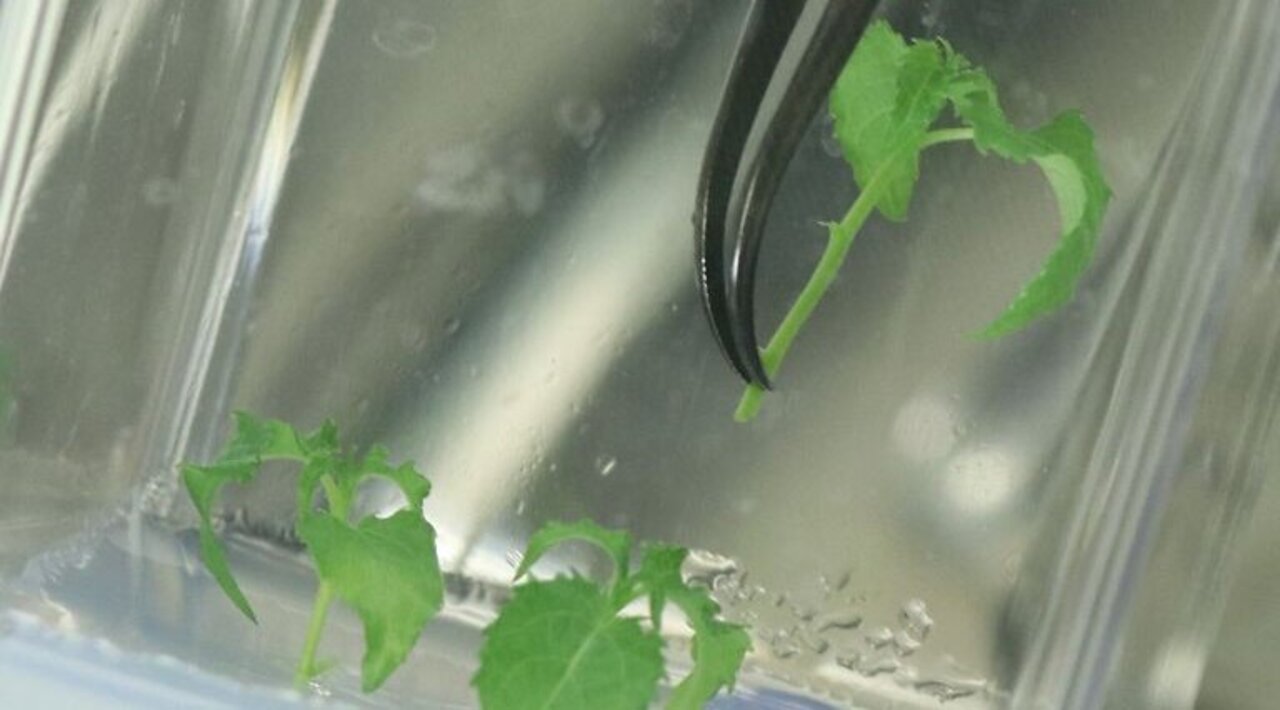Project
TreeEdit

Genome editing for the analysis of genetic variation in poplar and beech
The "Genetic Technologies" Group is an independent junior research group at the Thünen Institute of Forest Genetics, funded by the Agency of Renewable Resources ("Fachagentur Nachwachsende Rohstoffe", FNR).
Background and Objective
The project has three main objectives:
1. Using the poplar as a model, it should be clarified which gene variants – alone or in combination – are important to make trees resilient to the challenges of climate change (drought stress).
2. A genetic marker set for the identification of individuals with a predisposition for climate change adaptation is to be tested for poplar. These individuals could then be used specifically for the genetically based plus tree selection for breeding.
3. The findings from the model tree species poplar are to be transferred to the currently badly damaged common beech Fagus sylvatica. For this purpose, genome editing for the beech will be tested on the one hand and the effect of natural genetic variation on drought tolerance should be determined on the other hand on the basis of edited beeches.
The knowledge gained could possibly also be transferred to other tree species. The FNR junior research group "Genetic Technologies" therefore aims to prepare trees for climate change and thus ensure their continued existence in Germany.
Approach
Establishment of the beech for sterile tissue culture and genome editing
An in vitro culture is to be established for beech that would be unique in Germany, although beech is an important tree species in this country. For this purpose, the existing know-how of tissue culture from poplars, elms, ash and birches is to be transferred to the common beech so that we can test up to 10 different beech genotypes for transfer to sterile tissue culture. All cultivation conditions such as culture medium including all additives, temperature, lighting intensity, humidity are adjusted and optimized for the beech. Once it has been successfully established, editing of the beech genome will be tested – something that is unique in the world to date.
The aim of the project is expressly not to plant genome-edited trees in forest or forest areas. Genome editing serves us as a laboratory-based method to produce trees with modified genetic traits within a reasonable time and budget and to determine the potential of the selected genes for site adaptation. Once the gene variants have been found and tested, they should then be enriched in the breeding population using conventional breeding (crossing and selection).
Genetic analyzes in the poplar model system
Since the common beech is a rather slow-growing tree species, genetic analyzes are to be carried out at the same time using the model tree species poplar. For six selected candidate genes, the intraspecies variation in coding and regulatory areas of the genes is detected. The aim is to determine the effect of the variation in these candidate genes on the poplars' drought stress tolerance.
The genes SCL4 and SCL7 (Bruegmann 2016; Fromme 2017), which were initially processed at the Thünen Institute for Forest Genetics, are suitable as candidate genes. In Zhang et al. (2019) investigated further GRAS transcription factors in the Orange Citrus sinensis that are suitable for processing in this project. As an established crop, wheat has already been bred for the trait of increased drought stress tolerance. Another candidate gene is to be identified and processed from the existing analyzes (e.g. Fleury et al. 2010). The existing findings on these candidate genes are described in more detail in Sections II.1 and II.2 below.
Genome editing using CRISPR/Cas changes individual variations so that conclusions can be drawn about the function of the individual gene regions. The genome edits are to be proven by DNA sequencing at the genetic level, and also at the protein level in order to demonstrate the resulting functional changes in the gene sequence. In particular, protein folding could have an impact on the selected transcription factors among the candidate genes if the DNA-binding domains are altered.
Testing of genome editing in beech
The CRISPR/Cas-based genome editing is to be tested for the beech. For this purpose, the sterile tissue culture is to be adapted for the beech and at least ten genotypes are to be transferred to the tissue culture on an experimental basis. A regeneration and transformation system is then created for the beech and the most suitable nuclease for editing is determined. After creating the gRNA and donor sequences, genome editing is carried out in order to change the genetic variability, as previously described for the poplar, and subsequently to determine the functional impact of the intraspecific variability.
Stress experiments
With the genome edited poplars, drought stress tests are to be carried out in the nursery within specially equipped greenhouses, so that it can be determined which edits have an influence on the poplar's drought stress tolerance. From this, the dependency of drought stress tolerance on certain variable areas in the candidate genes should be derived. Significant phenotypic changes are expected. During the stress test, the stress intensity is determined via phenotypic scoring and physiological measurements (e.g. photosynthesis performance). Furthermore, the expression of stress-correlated genes will be analyzed.
The stress tests described and subsequent analyzes are also to be carried out after the method has been developed with the generated genome-edited beeches.
Transcriptome analysis
It is intended to carry out an expression analysis (RNA sequencing) with various beech provenances that are planted in Berlin in a model experiment being unique in Germany.Different provenances will be specifically placed under drought stress.The results can be used to clarify which natural reaction (which genes are switched on or off?) the beech trees show under drought stress, how quickly they react to the stress (how quickly and to what extent is gene expression regulated?) and whether the location-dependent, different stress tolerance, e.g., between north German and south Italian beeches, is related to different gene regulation.Working groups from the Free University of Berlin and the Technical University of Braunschweig are involved as partners.
Academic education and training
As described in the call for funding, we assume our responsibility in academic training and further education, in that the junior research group leader should achieve the habilitation and two doctoral students should achieve a doctorate. The junior research group leader should also be involved in university teaching. Within defined project parts, students can complete their theses.
Thünen-Contact

Involved Thünen-Partners
Funding Body
-
Fachagentur Nachwachsende Rohstoffe e.V. (FNR)
(national, öffentlich)
Duration
3.2021 - 6.2026
More Information
Project status:
ongoing

![[Translate to English:] [Translate to English:]](/media/_processed_/f/3/csm_2022_Titelbild_gross2_Saatgut_in_Hand_9ffb8f5748.jpg)
![[Translate to English:] [Translate to English:]](/media/_processed_/f/3/csm_2022_Titelbild_gross2_Saatgut_in_Hand_c17270fcc0.jpg)





